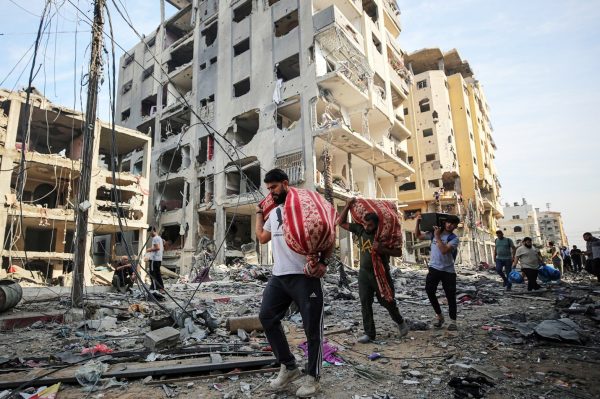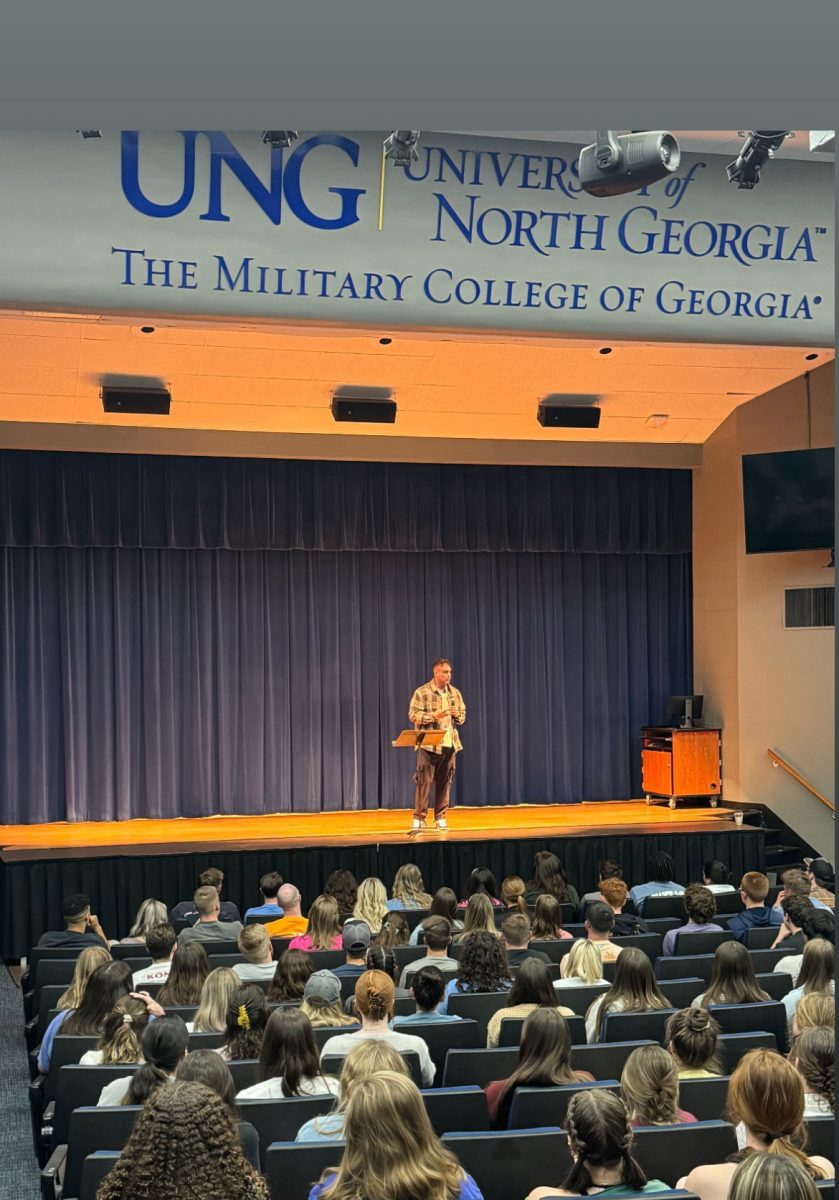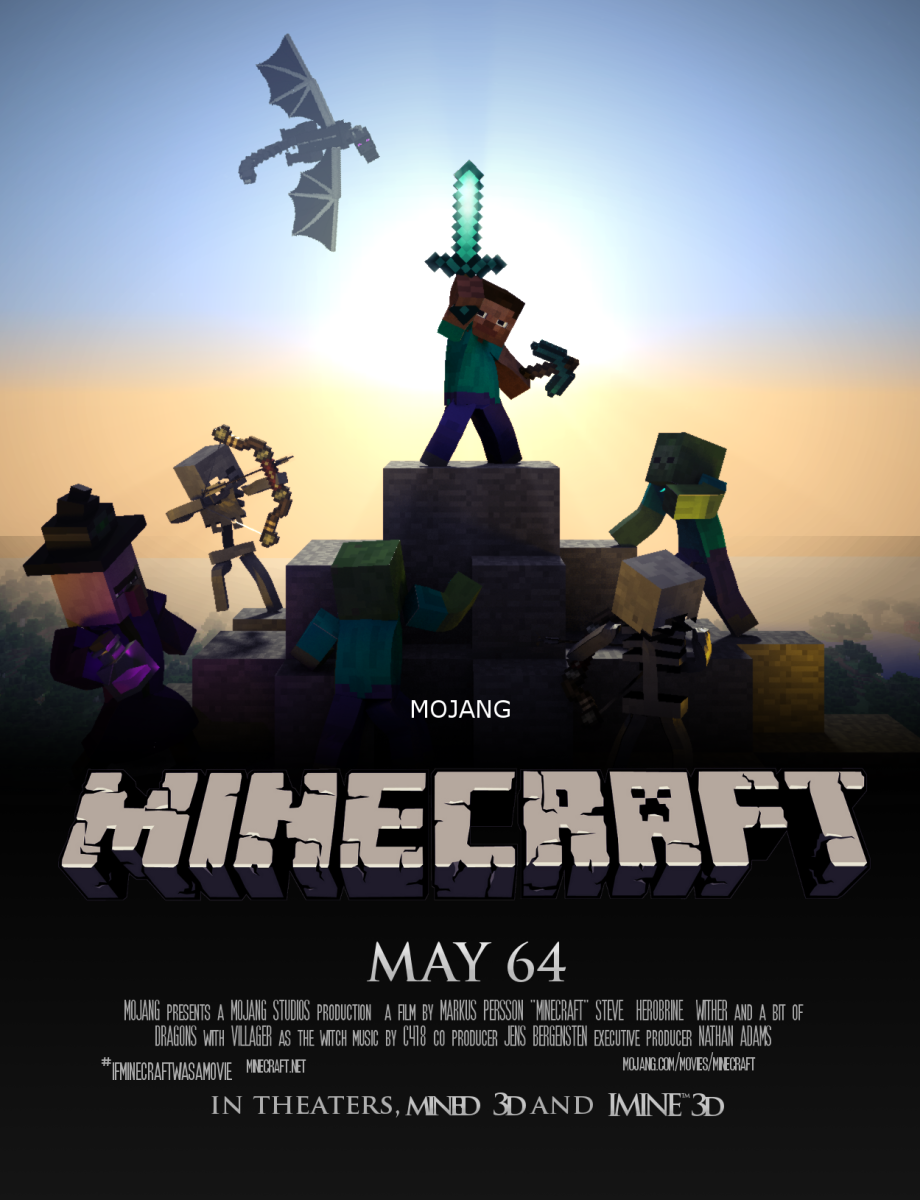
In Gaza, a grim reality unfolds. Hospitals, overrun with casualties, teeter on the brink of collapse; their fuel and supplies dwindling. In this besieged enclave, Palestinians yearn for the basics—food, water and safety—as they brace for an impending Israeli ground offensive.
On the other side of this tragic coin, more than 1,400 Israelis have fallen victim to the relentless violence, the vast majority among them innocent civilians. Hamas’s brutal assault on Oct. 7, an estimated 190 others were captured by terrorists and taken into Gaza.
Palestinians killed in Israeli airstrikes in Gaza in retaliation to the Oct. 7 attacks has risen to over 5,000, the Gaza-based Health Ministry said as of Monday Oct. 24 with the number of wounded over 15,000. With women and children having made up more than 62 percent of the fatalities.
This is a harrowing picture of the toll violence takes, indiscriminately claiming lives on both sides. It’s essential to acknowledge the tragic events that have unfolded and the imperative to stand for human rights while condemning violence from all sides.
International Response and Calls for De-escalation.
In response to the escalating crisis, the international community has acted swiftly. The United States has strongly condemned Hamas’ attacks on Israel while affirming Israel’s right to defend itself. The situation has prompted a chorus of voices from the United Nations calling for an immediate de-escalation of hostilities and intensified efforts to protect civilians caught in the crossfire.
Amidst the grim statistics and the urgent pleas for peace, it becomes abundantly clear that the toll this conflict has taken on innocent lives transcends borders and ideologies. The international response underscores the need for collective action and a renewed commitment to seeking a resolution that safeguards the lives and futures of both Israelis and Palestinians.
Challenges to Peace and the Imperative for a Balanced Approach
The recent events in the Israel-Hamas War underscore the formidable challenges and complexities that hinder the achievement of peace through the two-state solution. Settlement disputes, border delineation issues and ongoing security concerns persist as formidable obstacles on the path to resolution.
Amidst this backdrop of heightened tension, there arises an imperative for a balanced approach that seeks to address the multifaceted nature of the conflict. While unequivocally condemning violence and terrorism, it is equally crucial to prioritize the pursuit of peaceful solutions through diplomacy and negotiations, emphasizing the need for a collaborative effort that transcends years of the cycle of violence and retaliation.
Navigating these challenges calls for unwavering commitment from all parties involved, as well as continued engagement with the international community. Only through a comprehensive and balanced approach can the prospects for a lasting and just resolution to the Israeli-Palestinian conflict be advanced, offering hope for a more peaceful future for all affected by this long-standing struggle.
Genocidal Rhetoric
The recent rhetoric surrounding the Israel-Hamas War has sparked profound concerns regarding the language employed to characterize Palestinians. Israeli President Isaac Herzog’s statement exemplifies this concern when he remarked, “It’s an entire nation out there that is responsible. This rhetoric about civilians not being aware or involved is categorically untrue. They could have taken a stand; they could have resisted that oppressive regime.”
These words from Israel’s president are not isolated instances but part of a broader pattern of rhetoric. In the United States, Senator Lindsey Graham went to extremes by characterizing the situation as divinely inspired, asserting, “We are embroiled in a religious conflict. I stand with Israel. Do whatever is necessary to defend yourselves. Flatten the region,” during an interview on Fox News.
Israel’s defense minister, Yoav Gallant, exacerbated this inflammatory rhetoric by imposing a “complete siege” on the Gaza Strip.
“We are dealing with individuals who have lost their humanity, and our response reflects this—with the withholding of electricity, food, fuel, and all essential necessities. We are fighting human animals, and we are acting accordingly” – Yoav Gallant, Israel Minister of Defense
Addressing Humanitarian Crises
The recent conflict has thrust the Gaza Strip into the spotlight, shedding light on their dire humanitarian situations. Often referred to as an “open-air prison,” Gaza is home to nearly 2 million Palestinians, with 65 percent being under the age of 24 and the median age for men and women being 18 years. The Gaza population lives in densely populated areas with limited access to essential resources such as clean water, medical care and education. The blockade imposed on Gaza, which has been in place for over a decade, has severely restricted the movement of people and goods, exacerbating the region’s economic and humanitarian challenges.
Despite the Israeli government’s call for residents of Gaza to leave for their safety during the recent hostilities, the reality for many in Gaza is that there are few, if any, safe havens to escape to. The lack of resources, infrastructure and access to neighboring countries has made it nearly impossible for most Palestinians in these regions to flee the conflict. For them, escaping the violence remains an elusive and perilous endeavor. Furthermore, the recent developments involving Egypt and the Rafah crossing have highlighted the challenges faced by Gazans. The disruption of aid deliveries and the limited access for evacuations further exacerbate the already dire humanitarian conditions in the territory.
The Israeli government has ordered the one million plus residents of Gaza to evacuate to the south, ostensibly for their safety. The idea of evacuating a million people in any part of the world would be a Herculean task, but in the context of a war zone, it becomes a near-impossible feat. Families, including children and the elderly, are forced to navigate through perilous circumstances to find safety. This evacuation order underscores the immense difficulties faced by the Palestinian people in Gaza, who are trapped.
The situation in Gaza underscores the urgent need for a comprehensive and sustainable solution to address the humanitarian crises that have persisted for years. The immediate focus may be on ending hostilities, but the long-term goal must include lifting the blockade in Gaza, improving living conditions and ensuring that the people of Gaza have access to the necessities and opportunities they need to lead dignified lives. The plight of these regions serves as a stark reminder that peace in the region must go hand in hand with efforts to alleviate the suffering of their residents.
Seeking a Path to Peace
The Israel-Hamas War has, tragically, become ensnared in a relentless cycle of violence. Each act of aggression, retaliation and reprisal only serves to perpetuate the suffering of innocent civilians, further deepening wounds and intensifying hatred. It is a cycle that, if left unchecked, threatens to plunge society further into a world of endless conflicts.
Throughout history, we’ve seen the consequences of such cycles. The path of violence often leads societies to a place where the thirst for vengeance and retribution becomes insatiable. The horrors of war become normalized, and humanity loses its way in the darkness of hatred. These dangers lie not just in the actions of governments but also in the support of such actions from their populations. When governments commit acts of violence, and their citizens rally behind them, it becomes increasingly difficult to break free from this deadly pattern. The desire for revenge becomes the driving force, eclipsing the yearning for peace, reconciliation and coexistence.
There is another path—a path that calls for a different vision of the future. It is a vision where violence is replaced with dialogue, where justice is prioritized over revenge and where the recognition of shared humanity guides our actions. The cycle of violence can be broken if we dare to take a different approach. Instead of pursuing the path to a genocide, there can be a course towards a world where apartheid is nothing but a dark chapter in history. It is a world where people live as equals, where the rights and dignity of all individuals are upheld, regardless of their background or beliefs.
History has shown us that the road to peace is fraught with obstacles. However, it is a journey worth undertaking. For the alternative—a world consumed by bloodlust and endless conflict—is a future none should accept.























